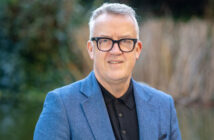The willingness of US companies to continue to invest in Ireland during our current economic difficulties will come to be recognised as one of the most crucial developments of this period, according to Peter Keegan, President of the American Chamber of Commerce Ireland.
Speaking at the American Chamber’s Annual President’s Lunch, Mr. Keegan said that since the start of the crisis five years ago, employment in US multinationals in Ireland has grown by almost 15% to 115,000 people in 700 companies. In addition US investment has increased 25% in last 5 years, bringing total investment in Ireland to over $188 billion.
“This is a stellar achievement given global economic conditions. US multinationals stuck by Ireland and played their part in full. We are not here just for the good times we are ready and willing to play our role when the going gets tough. The strength and on-going success of Foreign Direct Investment in Ireland is playing a crucial role in Ireland’s economic recovery. That’s part of the reason FDI is so important to economies and it also goes some way towards explaining why competition for FDI from other countries is intensifying with each passing year”, he said.
Mr. Keegan said that in the competition for foreign investment, other countries are improving their tax competitiveness all the time and Ireland cannot be complacent. He said that the international tax debate has moved way beyond our headline rate. “Consolidation of the tax base, a Financial Transaction Tax and Transfer Pricing are all under the microscope as never before”, he said.
“Earlier this week we saw the publication of the OECD’s interim report on Base Erosion and Profit Shifting. Clearly there is an appetite to review current tax policies to ensure they are effective in a constantly changing global environment. However, any change will involve a fundamental rethink of international tax principles and we can anticipate much discussion and debate as the OECD formulates proposals for its Action Plan to be published in June.
“In any such debates, the Government must not shy away from robustly protecting our competitive tax regime. We can stand firm in the knowledge that our tax regime is internationally recognised as fair, transparent and just. Ireland is not a tax haven and this is confirmed by the OECD and by the many tax treaties we have in place. Investors in Ireland build businesses of substance. We should not feel the need to be defensive or in any way embarrassed about this legitimate use of tax as a competitive tool”.
“Our competitiveness has been slowly improving, climbing four places to 20th in the IMD World Competitiveness Yearbook in 2012. But when you consider we were comfortably in the top ten in this important measure of international competitiveness less than 10 years ago, it is clear we still have a long way to go.
“This points to the need for the utmost caution when it comes to any fiscal adjustments in the economy, as the Government weighs up difficult choices, we must carefully consider the impact of measures which add to the cost of doing business and the potential unintended consequence of diminishing our hard won competitiveness”, he said.
Mr. Keegan said that while we should not underestimate the scale of the task ahead of us, there are tangible signs that Ireland should now be looking forward again with some degree of optimism.
“We’ve a long way to travel and we still face significant challenges in areas such as unemployment and our debt to GDP ratio. But real progress has been made, the long awaited restructuring of the promissory notes being the most recent example. Bond yields have fallen to more sustainable levels, while Standard & Poor’s has updated its outlook on Ireland from negative to stable. The Government has been able to raise new debt on international markets while the domestic banks and utility companies have also been engaging in capital raising activities. All of this is very encouraging as we continue to work towards a more sustainable fiscal and economic model”, he said.
“We need to restore our self-confidence to assert our national interest in Europe as we continue to negotiate a better debt deal. We are not the first country to make mistakes and we won’t be the last. But, if we continue along the current path, we may yet be the first country to emerge from the debt crisis”, said Mr. Keegan.
Today’s lunch was sponsored by Danske Bank and was also addressed by Charles Leadbeater, independent consultant and strategic advisor on innovation.



